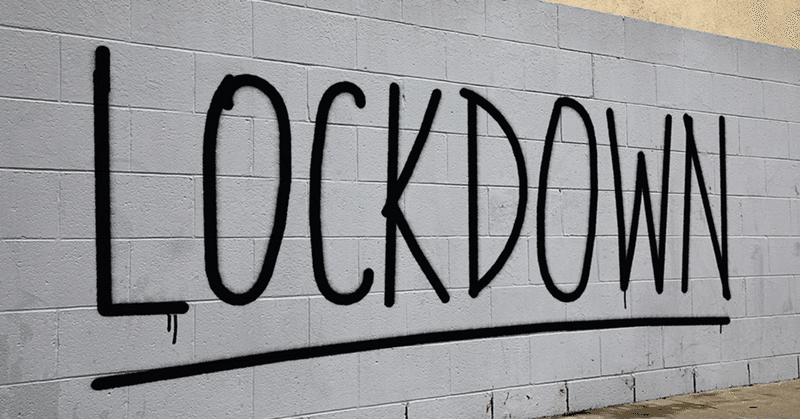
人々の覚醒が試されるワクチン接種 その51
原文の機械翻訳です。
フィリピン、再びロックダウンを復活させ、1300万人が影響を受ける首都圏
2021年8月5日(木) by: Mary Villareal
(Natural News) フィリピンでは、8月6日から8月20日まで、1300万人が影響を受けると予想される厳しいロックダウンが再び実施されています。首都マニラとその周辺都市を含むこのロックダウンは、デルタ変種によって煽られたCOVID-19の患者が急増し、国内の病院を圧迫する可能性があることを防ぐことを目的としています。
政府のハリー・ロケ報道官は、7月30日のテレビ演説で、地域社会での検疫強化の復活を発表しました。ECQの再開は「痛みを伴う」決断だが、感染力の強いデルタ型を抑制するためには必要なことだと述べた。
「ECQが難しいことは分かっているので、これは苦渋の決断ですが、デルタ型で感染者が出た場合に、ICUのベッドやその他の病院の必要条件が不足するのを避けるために、これを行う必要があります」とロケ氏は述べました。「最終的には、より多くの命を救うために、このような困難な状況を乗り越える必要があるということを、誰もが念頭に置いていました」。
デルタ型の感染は昨年7月22日に現地で確認され、29日にはさらに97件の感染が報告され、合計216件となりました。(関連記事 フィリピンからの感染力の強い新型コロナウイルスが英国で検出される)
フィリピン、マニラ首都圏でスケジュール制限
OCTAの研究グループは、首都マニラでのウイルス感染を抑制するため、マニラ首都圏を封鎖するよう政府に要請しました。OCTAの研究員であるGuido David博士は、"私たちはより厳しい検疫を推奨しました。"なぜなら、もし私たちがこれに打ち勝つことができるなら、私たちは大丈夫なはずだからです。
「なぜなら、より多くの人がワクチンを接種し、ウイルスが再発するのではないかと心配している人がいるかもしれないので、ブースターショットを用意しているからです」と付け加えました。
新たな規制のスケジュールは、7月30日から8月5日までの一般地域検疫(GCQ)と追加規制の強化、8月6日から20日までの強化地域検疫(ECQ)から始まりました。
GCQ期間中は、レストランでの食事が禁止されますが、テイクアウトや配達は可能です。また、介護施設や屋外の観光施設は30%の定員で営業でき、マニラ首都圏外への旅行は許可された人のみが可能です。
ECQでは、病院、食料品店、宅配便、製造業、ビジネスプロセスアウトソーシングなど、必要不可欠な施設や産業のみが営業を許可されることになります。
また、銀行、電気通信、歯科医院、その他の医療機関、水道・衛生サービス、法律サービスなどの事業所は、限られた人員で運営されます。また、公共交通機関の運行も停止または制限されます。
民主主義国の自由を阻害するロックダウン
ロックダウンは、特にフィリピンのような民主主義の国では、個人の自由を阻害します。感染が始まって以来、多くの国で民主主義や人権に関する状況が悪化しており、政府がCOVID-19を口実に、少数民族を疎外したり、反対派を封じ込めたり、情報を統制したりした事例が報告されています。
2020年5月にフィリピンのロドリゴ・ドゥテルテ大統領がパンデミックの最中にテレビネットワークの閉鎖を命じ、騒動に発展したのは確かにその通りです。警察は、健康危機の際に最も目立つフロントライナーの一つであり、外出禁止令や社会的距離を置く政策を施行しました。抗議者や批判者は、社会的距離を置くことを実践していたにもかかわらず、警察が戦闘服を着て分散し、逮捕されました。警察による残虐行為が表面化しました。違反者は犬の檻に入れられ、他の人は日向ぼっこをさせられました。
これらの動きは、ドゥテルテ政権下での権威主義的な行為の広がりを示しており、近年最大の健康危機の中、民主主義社会であるはずの社会において、人々の自由と政府の説明責任の可能性を狭めています。
世界各地のCOVID-19に関する最新情報はPandemic.newsでご覧いただけます。
ソースは以下の通りです。
News.Yahoo.com
Rappler.com 1
Rappler.com 2
ニュース.ABS-CBN.com
Brookings.edu
原文:
Philippines reinstates another lockdown, affecting 13 million people in capitol
Thursday, August 05, 2021 by: Mary Villareal
(Natural News) The Philippines is reimposing strict lockdowns, which is expected to affect 13 million people, beginning August 6 until August 20. The lockdown, which includes the capital city of Manila and nearby cities, aims to prevent a possible surge of COVID-19 cases fueled by the delta variant that could overwhelm hospitals in the nation.
Harry Roque, the government spokesperson, announced the reinstatement of enhanced community quarantine (ECQ) in a televised address on July 30. He said that the decision to go back into lockdown was “painful” but that it had to be done to limit the more transmissible nature of the delta variant.
“This is a painful decision because we know ECQ is difficult, but we need to do this to avoid a shortage of our ICU beds and other hospital requirements, if cases balloon because of the Delta variant,” Roque said. “In the end, what everyone put in mind was we needed to come up with this difficult situation so that more lives would be saved.”
Local transmission of the variant was confirmed last July 22, and on the 29th, 97 more cases were reported, bringing the total to 216. (Related: New, more transmissible coronavirus variant from the Philippines detected in the UK.)
Philippines schedules restrictions in Metro Manila
The OCTA research group urged the government to place Metro Manila in lockdown to curb the virus infections in the country’s capital. Dr. Guido David, an OCTA research fellow, said, “We recommended a stricter quarantine because if we can beat this, we should be okay.”
“My feeling is we should be ok until the end of the year and until next year because we will have more people vaccinated and we will have booster shots available in case some people are worried that the virus may come back,” he added.
The schedule of the new restrictions began with a general community quarantine (GCQ) with heightened additional restrictions from July 30 to August 5 and an enhanced community quarantine (ECQ) from August 6 to 20.
The stricter GCQ period prohibits restaurant dining, although take-out and deliveries are allowed. Personal care establishments and outdoor tourism attractions can operate at 30 percent capacity, and only authorized persons can travel outside Metro Manila.
For ECQ, this means that only essential establishments and industries will be allowed to operate, such as hospitals, groceries, couriers and delivery services, manufacturing firms and business process outsourcing.
Other establishments such as banks, telecommunications, dental and other medical clinics, water and sanitation services and legal services can operate with a skeletal workforce. Public transportation will be suspended or limited.
Lockdowns impede freedom in democratic nations
The lockdowns impede on the freedom of individuals, especially in democratic countries like the Philippines. Since the outbreak began, conditions for democracy and human rights have grown worse in many countries, and reports point to cases where governments used COVID-19 as a pretext to marginalize minority groups, shut down the opposition, and control information.
This is certainly the case when Philippine President Rodrigo Duterte ordered a TV network shutdown during the pandemic in May 2020, sparking uproar. Police were among the most visible front liners during a health crisis, enforcing curfew and social distancing policies. Protesters and critics, despite practicing social distancing, were dispersed and arrested with the police wearing full battle gear. Cases of police brutality surfaced. Violators were locked in dog cages while others were made to sit under the sun.
These developments illustrate the reach of authoritarian practice during Duterte’s reign, curtailing freedom of the people and the possibility for government accountability in what is supposed to be a democratic society during the biggest health crisis in recent times.
Get more updates about COVID-19 situations around the globe at Pandemic.news.
Sources include:
News.Yahoo.com
Rappler.com 1
Rappler.com 2
News.ABS-CBN.com
Brookings.edu
この記事が気に入ったらサポートをしてみませんか?
